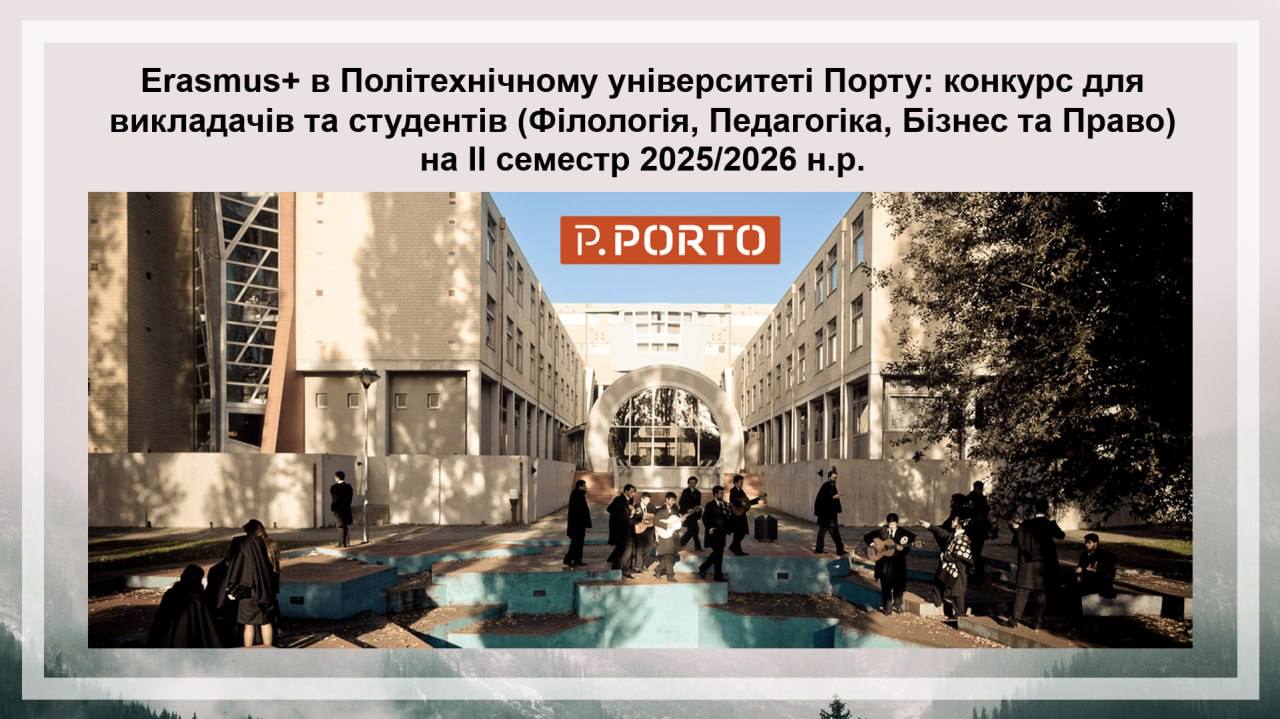On 15-24 July, 2024, a third-year student of Educational and Research Institute of Architecture, Civil Engineering and Land Management of National University “Yuri Kondratyuk Poltava Polytechnic” Anna Kvasnevska took part in the CHANGING CITIES LAB Summer School for Urban Planning and Design, which was held at the leading German partner university, Technische Hochschule Lübeck.
After returning to her alma mater, a student of Poltava Polytechnic shared her impressions of participating in a large-scale international event and staying in an extremely atmospheric German city.
“I have a pleasant opportunity to tell you with great enthusiasm about my experience of participating in the Changing Cities Lab programme from Technische Hochschule Lübeck. The main concept of the training was to analyse ways to develop and adapt urban heritage in the context of climate change. And the ancient island city of Lübeck, located in northern Germany, was perfect for this study!
Arriving for the first time in Lübeck at night, I immediately realised that this city is capable of making you fall in love with it. We were kindly greeted and escorted to an atmospheric hostel located on one of the oldest streets of the island city. Walking along the ancient streets, I had the feeling that I was on the canvas of mediaeval frescoes or tapestries.

The first day of the programme was extremely exciting and intense. We met students and professors from different countries – China, India, Egypt and Germany. Everyone had the opportunity to talk about their personal attitude to the topic of urban heritage preservation and the impact of climate change on it. It was interesting to discover that despite the differences in climate, cultures, and countries, we have many common challenges.
The following days were filled with excursions around the old city, various lectures and workshops. The students were divided into several groups of 5-6 people and allocated areas for future research. The aim of our work was to create an idea-concept for adapting the city and its architectural heritage to climate change. This problem is very relevant for local residents, as the coastal areas of Lübeck are prone to flooding.

I was personally impressed by the interactive approach of the teachers to organising the work of the participants. The students not only worked in the coworking space, but also explored the city by taking photos, working with a physical map of the area, conducting interviews with local residents, etc.

To take a break from our hard work, we had an exciting trip to Hamburg on our day off. It was extremely interesting to see with our own eyes the miracle of modern architecture – the Elbe Philharmonic, visit the Water Pressure exhibition at the Museum of Art and take a tour of the HafenCity port district. Hamburg impressed us with its scale, modernity and rich experience of post-war reconstruction.

We should also mention an unforgettable excursion to the European Hanseatic Museum, which is part of a former 13th-century Dominican monastery in Lübeck. It was hard to resist taking pictures of every corner of the mediaeval interiors and ancient stained glass windows.


After 10 days of exciting events and group work on tasks, we presented the results of our research. Each team had its own original concept and vision of how to solve the problem. After defending their projects, all the participants and organisers went on a wonderful boat trip around the old town.

The programme ended with a cosy dinner at a local restaurant, where everyone discussed the experience, shared memories, and plans for the future.
In such a short period of time, Lübeck has taken hold of my heart. I want to return to the familiar streets and meet new friends.

The Changing Cities Lab programme at the Technische Hochschule Lübeck has become for me not only a source of new knowledge and skills, but also an unforgettable experience of international cooperation. Working together on the problems of adapting historical heritage to climate change has shown me how important it is to combine the efforts of different cultures to solve global problems. I am confident that this experience will inspire me for my future research and interesting projects,” – says the student.

Earlier, Polytechnic students completed their studies under the Erasmus+ credit academic mobility programme at a leading Romanian university, and an environmental student completed a year of study at the Avance University of Applied Sciences (Netherlands), a student translator became a scholarship holder of the Czech government and took part in the Summer School of Slavonic Studies, a master’s student translator shared her impressions after completing her studies at Vilnius University of Applied Sciences (VIKO), a master’s student in architecture completed her studies at the Estonian University of Natural Sciences, and four female students of the Polytechnic completed their studies under the Erasmus+ academic mobility programme at the Romanian university “Aurel Vlaicu” University of Arad, a Polytechnic student became a participant of the Polish-Ukrainian youth exchange under the Erasmus+ programme in Motycz Leśny near Lublin, future translators studied practical cases of integrating EU youth goals by joining the Erasmus+ project in Turkey, Polytechnic students in Poland studied youth approaches to developing environmental projects at the regional and national levels, and student translators took part in an Erasmus+ youth exchange in Italy and learned how children’s games can teach teamwork, creativity, self-reflection, and social integration.
It should be noted that students of Poltava Polytechnic have the opportunity to study abroad under the grant programmes of credit academic mobility for a semester or a whole academic year at the leading universities of Austria, Greenland, Denmark, Estonia, Lithuania, Latvia, Norway, the Netherlands, Germany, Poland, Romania, Slovakia, Finland, and the Czech Republic.
For more information about the current academic mobility programmes, please contact the International Relations Department (room 320-F, interoffice@nupp.edu.ua) or the Candidate of Philological Sciences, Associate Professor of the Department of Germanic Philology and Translation Anna Kostiantynivna Pavelieva (room 310-C, email: kunsite.zi@gmail.com, phone: +3-8-(095)-91-08-192).
Media Center of
National University “Yuri Kondratyuk Poltava Polytechnic”



